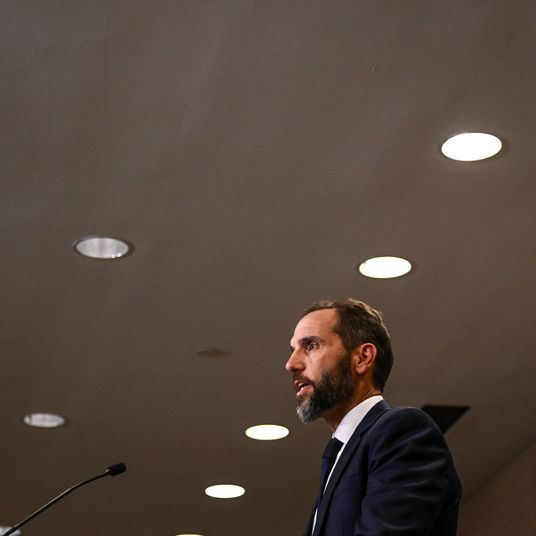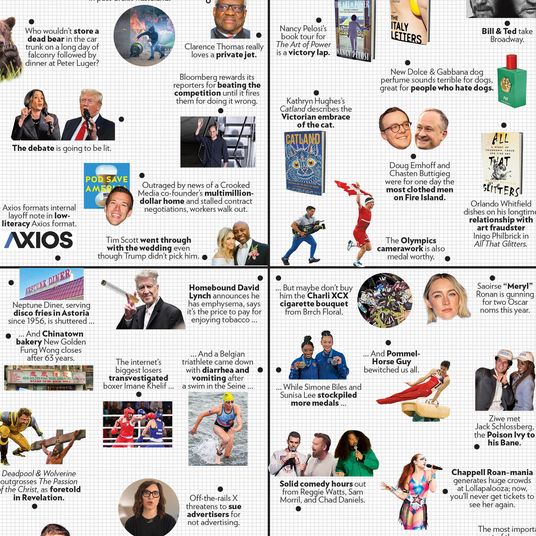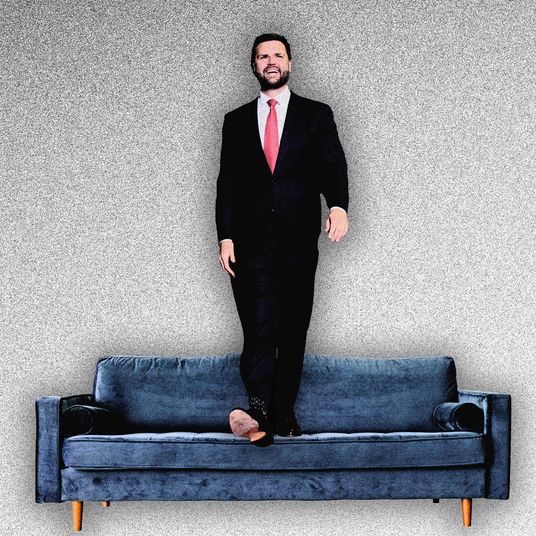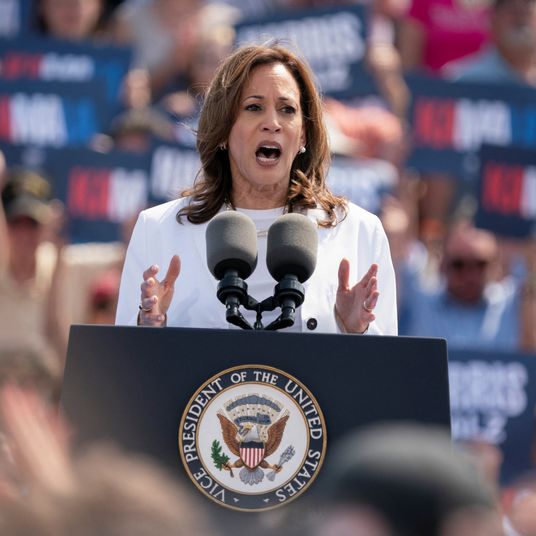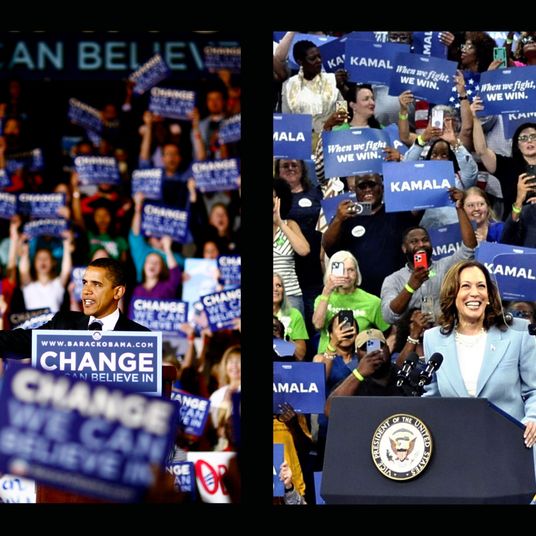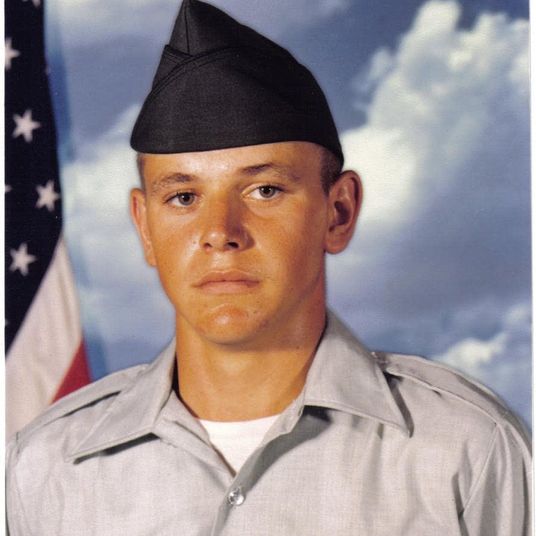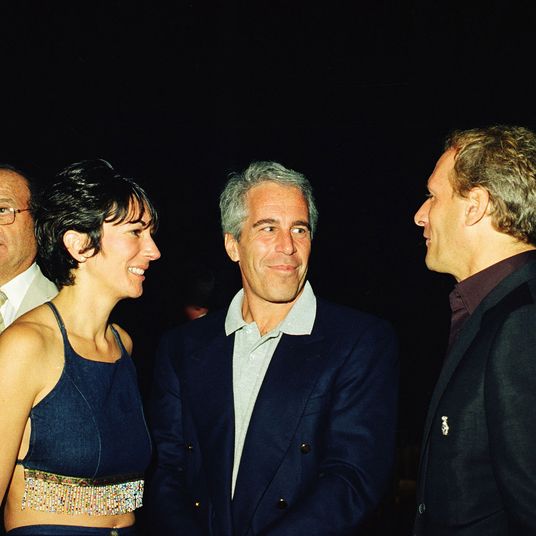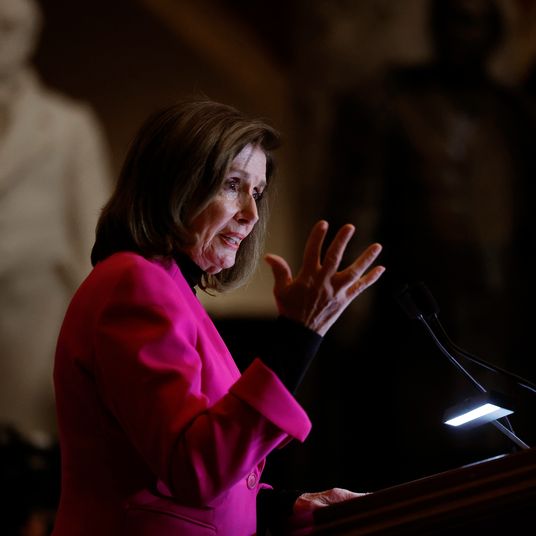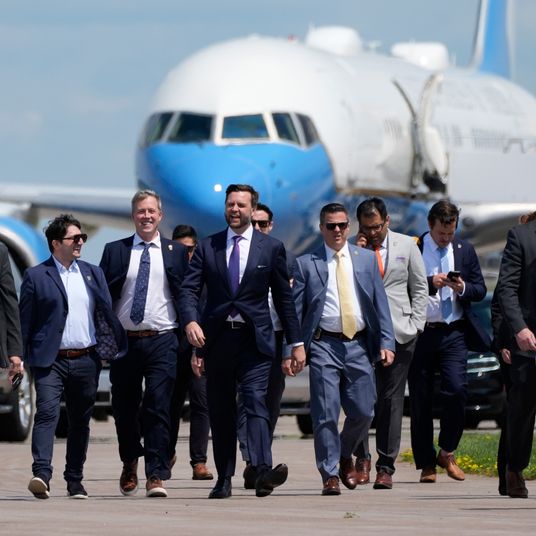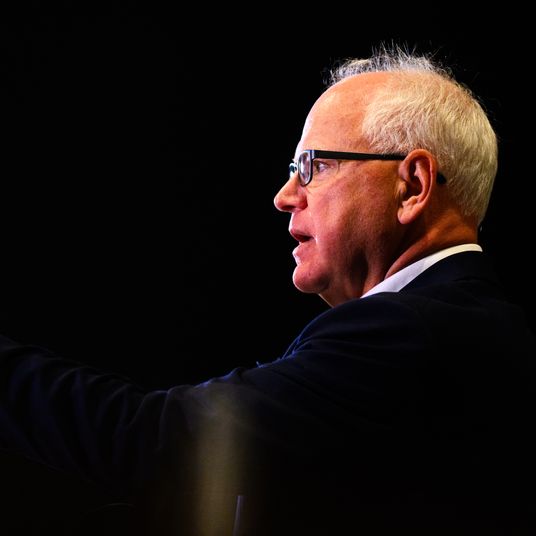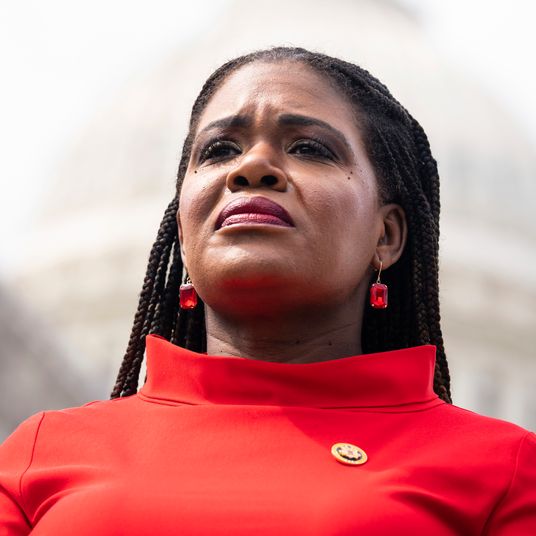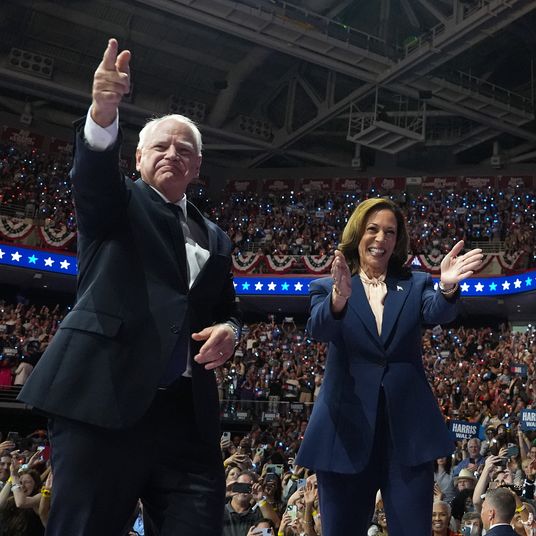
Since their lavish pre-wedding celebrations this spring, anticipation has been building for the wedding of Radhika Merchant and Anant Ambani, which begins on July 12 at the Jio Mumbai. Ambani is the youngest son of Asia’s richest person, and his fiancée, as it happens, is also an heir to a billionaire family in India. To understand how the superrich wed, we spoke to Julian Posner and Jamie Simon, the CEO and head of events, respectively, of Banana Split. Founded by Posner in 1976, Banana Split is an event production company based in London and Cap d’Antibes that specializes in ultra-ultraluxury weddings around the world. “We’ve found a niche in a market where if somebody wants something, they know they can get it,” Posner says. They’ve planned weddings in Buckingham Palace, Windsor Castle, and Versailles; they’ve booked Amy Winehouse, Elton John, and Tina Turner. And in 2023, they planned the TikTok generation’s equivalent of a royal wedding when they oversaw the nuptials of Sofia Richie and Elliot Grainge. Here, Posner and Simon talk about their indispensable rules (always have two generators), their logistical crises (what do you do when a barge you’ve booked gets hijacked?), and what it takes to get Andrea Bocelli to serenade a bride’s walk down the aisle.
What has been the biggest-budget wedding you’ve ever worked on?
Posner: I don’t really want to answer that, Abby. Let’s say tens of millions.
Who do you mostly work with? Is it the couple, their parents, or their staff?
Simon: Most of the time we work with the bride and the groom, and there tends to be somebody else that really wants to have an opinion, like a parent. Different cultures work in different manners. So we find with the Asian clientele, there’s often a brother or a sister who is kind of leading the process. But we do work a lot with very, very busy people. They have assistants upon assistants, so we do work a lot with assistants to get things done. Lots of our clients are time poor because they’re enjoying themselves or their business demands a lot of the time. So we’re always making sure we get the right information in front of them quickly so they can make decisions.
How much time do you guys usually have?
Simon: Six weeks to two years, and I would say that every year, the lead time gets shorter and shorter. Normally, it’s 12 months out from the engagement: People get engaged in June, they want to be married the following June. But just as often, we’ll meet people where I call it Amazon Prime. I want something, I order it, it comes. People at this level, they don’t care whether it’s a private event or a bottle of water — they have that same expectation. We are very good at mobilizing very, very quickly to make stuff happen.
Posner: For Sofia Richie’s wedding, they had a Los Angeles planner booked for two years that Lionel was working with. Then the job got transferred to Europe, and for whatever reason, they felt it would be better to use us. So we jumped in at 11 weeks. It was a very, very big wedding and nothing was arranged apart from the venue. We had to find a venue for the rehearsal dinner. We had to find so much stuff.
Simon: That happens to us multiple times a year — people will start with a planner, they get sold a dream, and then they realize the planner can’t deliver upon it. So the clients will say, Sorry, can you come in? It wasn’t working, it wasn’t right. This is also when people drop huge amounts of money: They’ve lost deposits and fees and the rest of it. They’re just like, I’m walking away from this person because he’s not going to deliver. So I suppose that’s the joy of having a budget, too.
So what kinds of things are your clients asking for?
Posner: Quite a few years ago, I got a phone call from a very famous lady who I’ve never worked with before. She asked if we could do their wedding. Sure. We had five and a half weeks, and it was a massive event in the south of France. And to make life even more difficult, we had Elton John, we had Lionel Richie, we had Mariah Carey — these major world stars. And to make life even more challenging, she said, “I don’t want shit hotel food.”
I can’t quite explain it, but we just know what the right thing, the right place, is — it’s kind of our breeding. So I went to Le Petit Maison in Nice and asked them to cater one night of the wedding. They’re world class. They said, “We don’t do that.” I said, “How much do you make on a Saturday night? Give me your number from this day last year and the year before. And be honest.” They gave me the number. It was a fair amount of money. I said, “Fine, we’ll cover that cost, and then we will transport all your restaurant to the hotel.” Job done. Why would you say no?
Simon: One time we did a Japanese-themed evening — it was a birthday party. We had a sumo-wrestling tournament, and the dance floor was built as a sumo ring that came out to the dance floor. There was also a pop-up Nobu for 200 guests, and the then-executive chef of Nobu, Mark Edwards, came to cook. We had to build fridges and freezers. We had to bring wait staff. That was amazing. Another time, we took a whole Michelin-star restaurant from the George V in Paris and moved it to another one of the Four Seasons hotels because the client was like, I love the food there, but we’re having the party here, so bring the food. And there have been some silly things. There’s a story about flying celery salt for Bloody Marys from London to the Maldives because the cocktail wasn’t right.
Posner: We even have a Botox lady. So if the bride wants Botox before the wedding, we’ve done that. We’ve also done — what’s that thing that goes into your arm? An IV. If they want it, it’s like: Good. Have it. We don’t care. We know what people’s needs are, and we facilitate them.
When you’re planning a wedding that big, are there decisions that a “normal” wedding wouldn’t have to deal with? Like security or a plan for paparazzi?
Simon: I don’t think that what we do is so different. It’s just that we drive into more detail on everything because the budget allows for that. So for a — I’m going to use the word normal — wedding, you have a choice of one knife and fork, but when budget is not an issue, I can present you 30 or 40 different cutlery sets, and you can choose which one you want.
At the top end, clients are really, really concerned about how they are perceived in terms of the hospitality that they’re offering people. The most important thing is making your guests feel really well looked after. It’s like: You have made the effort to come and spend the weekend with us. I want you to have a fantastic time. I don’t want you to be rushed. I don’t want you to be hungry. I don’t want you to be thirsty. I want you to be entertained. That’s universal across the world, and we are just dealing with that at a higher-stakes level. We are dealing with people who don’t want to drink a bottle of beer, they want a cold glass of Champagne.
I think as you move lower on the budget, this flips. It goes from “What do my guests want?” to something more like “This is what I want, this is my wedding, and I want it to be like this and I want it to be like that.” But we’re in the world of “I am being judged” — for want of a better word — “by the party that I throw, the hospitality that I offer, the food that I serve, the band I put on the stage.”
How hard is it to book talent? Is it competitive to get Elton John for a bridal entrance, for example?
Posner: For these big names, we know all their management; we don’t go via agents, we go straight in so people pay the right number.
Simon: When you hire big talent, they have to be coaxed. Who is it? What’s the job? Where am I going? What hotel can I stay in? How much are you going to pay me? I need to bring my dog. That plane’s not big enough.
I’d say a third of our business is entertainment in some way. But the shift for wedding entertainment is that it’s slightly moving away from “Who’s the superstar that I can have on the stage?” to “How can I create a live piece of theater in my event?” So we’re bringing the setting to life, which involves everything from planning the bridal entrance to writing and scoring music that perfectly works with the length of the aisle. There’s a lot of bespoke music and entertainment to set the mood.
Posner: We have our own production team in-house and our own lighting and sound team with our own kits. There was a job we did recently where the client really wanted Andrea Bocelli to sing while she walked down the aisle. Unfortunately, he had a job in the morning, so he said no, which is fully respectable. Two days before the wedding, his manager phones up one of our colleagues and says, “Andrea’s job was canceled, he can do your wedding for you.” Andrea requires very, very specific equipment, and the microphone he prefers costs 10 grand: It’s very long, and the microphone is actually in the base and the stand, so it just looks like a stick. But we happen to own this in our warehouse in London along with a particular grand piano that he loves. The wedding wasn’t in London, but we spoke to our colleagues there and said: “Okay, go to the warehouse, prep all the sound equipment.” Then they drove through the night and got it all to the venue, and no one knew a thing.
What is the single most important lesson you’ve learned on the job?
Posner: It’s called covering your ass. For example, you need to have a generator for power — we won’t work without a generator. But actually, you need to have two generators, so if one breaks, it clicks into the other one. It costs more money — I’ve actually lost a job over a generator cost. They were too expensive, but we cover our asses. Stevie Wonder — we adore him. Of course, he can’t see, and his time is ridiculous. So, if we want him on a job in Europe, we book him a flight out of L.A. at 8:30 in the morning and one at midday. So we’ve got our asses covered. You have to do that. And that’s what a bigger budget allows. When hiring tablecloths, chairs, tables, we always hire 10 percent more. Someone will say that that is a waste of money, and for some people, it is. But for us, if we need 200 chairs, you’ve got 20 spare ones. Some can come in broken, some could come in with bloodstains. We take no risks.
We also overcater. And we don’t ask guests beforehand if they are vegetarian or if they have allergies. We have a dedicated chef in the kitchen doing special meals. Yes, it costs a few pounds more — so what? Higher-net-worth clients, they just want it perfect. They don’t want the excuses. We did this job recently, and the client was Indian. A very well-known guest said to me, “Posner, I’m a bit embarrassed. I don’t eat Indian food.” I said, “No problem. What would you like? Pasta?” So we did pasta, followed by steak and chips, followed by tiramisu. He went, “Oh my God, thank you so much.” How easy is that? And it doesn’t cost anything. Food does not cost; it’s the labor that costs the money.
What are some of the trickiest or most complicated venues you’ve worked with?
Simon: It’s not finding difficult venues, it’s usually looking at venues that people use often and trying to reinterpret them.
Posner: One time, we were asked to build a ballroom with 450 people in the client’s mansion in Hampstead, a garden suburb in north London. And I said, “There’s not a big enough space.” The client said, “It’s a mansion. I’ve got acres.” On the property, there was the biggest lake I’ve ever seen. I said, “Okay, let’s use the lake.” So we built a ballroom on the lake.
This does all sound very logistically involved. Are there any memorable crises or fires you’ve had to put out?
Simon: Every week. In London, every five minutes there’s a protest, or there’s a road closed and somebody’s moaning because they can’t get the truck to the right place.
Posner: Once, we did a party in Cancun, and the client wanted an absolutely off-the-charts fireworks display. No problem. We booked three barges for the fireworks because the party was on the ocean. I don’t know where the barges were coming from, but on their way down to Cancun, they got hijacked.
Simon: I think the barges took the left turn instead of the right turn and were held up — probably not for a crazy amount of money, but they would have missed our window.
Posner: Our team was completely pulling their hair out. But we found three more barges; one was someone’s yacht, but we dealt with it.
Simon: Things present themselves all the time. Sometimes, it costs us money to fix. Other times, we’re pulling in favors. Our network of suppliers is as important as our network of clients. The last thing that we would ever dream of doing is telling the client.
Posner: There is no need for us to tell them our shit. That’s what they’re paying us for.
What would you say is the biggest difference between, say, a $2 million to $10 million versus $10 million to $20 million versus $20 million to $60 million and beyond?
Simon: Getting into those bigger numbers is really, really hard to do. I think you can only really spend those big numbers — well, there are two camps. One is talent. You are just booking every single big artist under the world because these people are now demanding one to $5 million. So you have a handful of those acts over a couple of days. The other way is if you’re showering your guests with gifts and giving everyone a Rolex. That kind of adds up. The big thing now is building Hollywood-style bespoke structures.
Posner: But when it comes to food, our chefs don’t care if they serve caviar or herring eggs or salmon eggs.
Simon: You can’t spend more than a thousand dollars feeding someone before someone’s just making themselves rich off you.
When the budget starts increasing, I can bring in more highly skilled people to work on the project. For example, one of the production managers we work with also does logistics for the Olympics opening ceremonies. Those are projects where he might spend 18 months on three minutes of a show. Well, a higher budget means I can bring him into a project. We have an in-house design team, but a higher budget means I can bring in someone else just to art direct. Or I can hire an amazing mixologist who can spend two weeks in my office thinking of cocktail recipes. At the wedding, we’re still only serving four cocktails; it just means that we can afford to have that preparation.
But, honestly, I think a lot of these big numbers are inflated because it’s ego, right? We read a lot of the press about even the weddings that we do, and it’ll say, “They spent that much,” and we’re like, “No, they didn’t.” It goes both ways. Sometimes, they massively overcook it, or sometimes they quote a number, and you’re like, “The client wishes it only cost that.”







